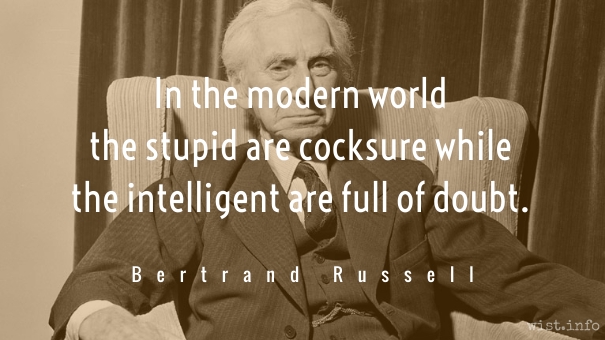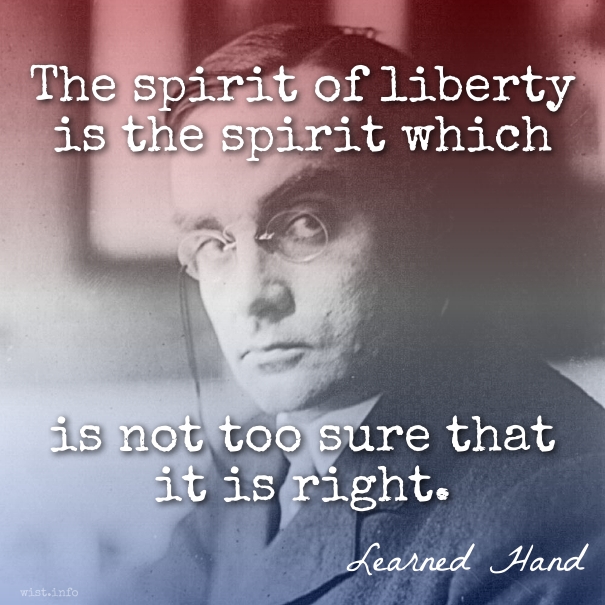If you have a friend that will reprove your faults and foibles, consider you enjoy a blessing which the king upon the throne cannot have.
James Burgh (1714-1775) British politician and writer
The Dignity of Human Nature, Sec. 5 “Miscellaneous Thoughts on Prudence in Conversation” (1754)
(Source)
Quotations about:
humility
Note not all quotations have been tagged, so Search may find additional quotes on this topic.
There is an affected humility more unsufferable than downright pride, as hypocrisy is more abominable than libertinism. Take care that your virtues be genuine and unsophisticated.
James Burgh (1714-1775) British politician and writer
The Dignity of Human Nature, Sec. 5 “Miscellaneous Thoughts on Prudence in Conversation” (1754)
(Source)
You can’t do the biggest things in this world unless you handle men; and you can’t handle men if you’re not in sympathy with them; and sympathy begins in humility.
George Horace Lorimer (1867-1937) American journalist, author, magazine editor
Old Gorgon Graham: More Letters from a Self-Made Merchant to His Son, ch. 12 (1903)
(Source)
The greatest achievement in my life in terms of morality is that I can apologize to someone I have wronged. I can bow my head and ask for forgiveness. I think everyone should learn to do this, everyone should realize that, far from humiliating, it elevates the soul.
Only bad writers think that their work is really good.
Anne Enright (b. 1962) Irish writer
In “Ten Rules for Writing Fiction,” The Guardian (20 Feb 2010)
(Source)
No Man is the worse for knowing the worst of himself.
Thomas Fuller (1654-1734) English physician, preacher, aphorist, writer
Gnomologia: Adages and Proverbs, #3601 (1732)
(Source)
It is good, too, that we sometimes suffer opposition, and that men think ill of us and misjudge us, even when we do and mean well. Such things are an aid to humility, and preserve us from pride and vainglory. For we more readily turn to God as our inward witness, when men despise us and think no good of us.
[Bonum est quod patiamur quandoque contradictiones, et male et imperfecte de nobis sentiatur, etiamsi bene agimus, et intendimus. Ista sæpe juvant ad humilitatem, et a vana gloria nos defendunt. Tunc enim melius interiorem testem Deum quærimus, quando foris vilipendimur ab hominibus, et non bene de nobis creditur.]
Thomas à Kempis (c. 1380-1471) German-Dutch priest, author
The Imitation of Christ [De Imitatione Christi], Book 1, ch. 12, v. 1 (1.12.1) (c. 1418-27) [tr. Sherley-Price (1952)]
(Source)
(Source (Latin)). Alternate translations:
It is good also that we suffer sometime contradiction, and that we be holden of others as evil, and wretched, and sinful, though we do well and intend well: for such things help us to meekness and mightily defend us from vain-glory and pride. We take God the better to be our judge and witness, when we be outwardly despised in the world, and the world judgeth not well of us.
[tr. Whitford/Raynal (1530/1871)]
It also is good that we sometimes suffer contradiction, and that we be thought of by others as evil and wretched and sinful, though we do well and intend well; such things help us to humility, and mightily defend us from vainglory and pride. We take God better to be our judge and witness when we are outwardly despised in the world and the world does not judge well of us.
[tr. Whitford/Gardiner (1530/1955)]
It is good for us sometimes to be crossed and contradicted, yea to be ill spoken of, and ill thought of, although we both doe and mean well. These wonderfully increase in us the vertue of humility, and strongly beat downe in us the vice of vain-glory. For then we more earnestly call God to witnesse in us and for us, when men abroad dis-esteeme us and give no credit unto us.
[tr. Page (1639), 1.3.3-5]
The Injuries and contumelious Usage, the Calumnies and Censures of them who speak and think ill of us, bring their Profit with them too; even when most wrongful, most undeserved. For these oftentimes are an occasion of rectifying our Measures, as bringing us to a juster and more modest Opinion of our selves: They cure our Ambition and Vain-glory, and convince us how vain a thing it is, to thrill after Reputation and the Praise of Men, when even Innocence and Goodness cannot protect us from Slander and Reproaches. They teach us to set a due Value upon the Testimony of our own Consciences, and the righteous Approbation of God, the Searcher of Hearts; when that which he will not fail to commend and reward, cannot escape the Contempt and Condemnation of the World, nor prevail for so much as fair Quarter, from our mistaken and injurious Brethren.
[tr. Stanhope (1696; 1706 ed.)]
It is good for him also to meet with contradiction and reproach; and to be evil thought of, and evil spoken of, even when his intentions are upright, and his actions blameless; for this keeps him humble, and is a powerful antidote to the poison of vain glory: then chiefly it is, that we have recourse to the witness within us, which is God; when we are outwardly despised, and held in no degree of esteem and favor among men.
[tr. Payne (1803)]
It is good that we be sometimes contradicted; and that there be an evil or a lessening conceit had of us; and this, although we do and intend well. These things help often to the attaining of humility, and defend us from vain glory: for then we chiefly seek God for our inward witness, when outwardly we be contemned by men, and when there is no credit given unto us.
[ed. Parker (1841)]
It is good for us also to meet with contradiction and reproach; and to be evil thought of, and evil spoken of; even when our intentions are upright, and our actions blameless; for this keeps us humble, and is a powerful antidote to the poison of vain glory. Then chiefly it is, that we have recourse to the witness within us, which is GOD; when we are outwardly despised, and held in no esteem and favor among men.
[tr. Dibdin (1851)]
It is good that we sometimes suffer contradictions, and that men have an evil or imperfect opinion of us, even when we do and intend well. These things are often helps to humility, and defend us from vain glory. For we then better seek God as our inward witness, when outwardly we are despised by men, and little credit is given to us.
[ed. Bagster (1860)]
It is good that we sometimes endure contradictions, and are hardly and unfairly judged, when we do and mean what is good. For these things help us to be humble, and shield us from vain-glory. For then we seek the more earnestly the witness of God, when men speak evil of us falsely, and give us no credit for good.
[tr. Benham (1874)]
It is good that we be sometimes contradicted, and this, although we do and intend well. These things help often to the attaining of humility, and defend us from vain glory: for then we are more inclined to seek God for our inward witness.
[tr. Anon. (1901)]
It is good for us sometimes to suffer contradiction, to be misjudged by men even though we do well and mean well. These things help us to be humble and shield us from vainglory. When to all outward appearances men give us no credit, when they do not think well of us, then we are more inclined to seek God Who sees our hearts.
[tr. Croft/Bolton (1940)]
It is good for us sometimes to endure contradictions, and to be thought of as bad or imperfect, even when we do and mean well. Such things often help towards meekness, and protect us from idle boasting. For then we look to God, the better inward witness, when we are disparaged from without by men, and no good is credited to us.
[tr. Daplyn (1952)]
It's good for you sometimes to hear men's voices raised against you, and to find that you are making a bad impression, or at least a false impression, on others, even when you are doing your best, and with the best intentions. It often makes for humility; prevents you from having too good an opinion of yourself. It's when we make a bad surface impression, and people are ready to think ill of us, that we learn to fall back upon God's judgements, because he witnesses all our actions from within.
[tr. Knox-Oakley (1959)]
It is a good thing that we are maligned now and again, and are misjudged and disliked even when we mean and do well. This sort of thing is often a great help in achieving humility, and it keeps us from groundless self-satisfaction; for we are more ready to listen for God’s assuring voice within, when those around believe the worst of us and treat us with contempt
[tr. Knott (1962)]
It is good too that we should be contradicted and ill-thought of, even when we act with the best intentions. Experiences like these help us towards humility and guard us against vainglory. When outwardly we are slandered and ill-thought of, then we will yearn more anxiously for God’s inward witness.
[tr. Rooney (1979)]
Sometimes it is good that we put up with people speaking against us, and sometimes it is good that we be thought of as bad and flawed, even when we do good things and have good intentions. Such troubles are often aids to humility, and they protect us from pride. Indeed, we are sometimes better seeking God when people have nothing but bad things to say about us and when they refuse to give us credit for the good things we have done!
[tr. Creasy (1989)]
Popularity is a Crime from the Moment it is sought; it is only a Virtue where Men have it whether they will or no.
George Savile, Marquis of Halifax (1633-1695) English politician and essayist
“Of Ambition,” Political, Moral, and Miscellaneous Reflections (1750)
(Source)
Women commend a modest Man, but like him not.
Thomas Fuller (1654-1734) English physician, preacher, aphorist, writer
Gnomologia: Adages and Proverbs, #5805 (1732)
(Source)
Do not consider yourself to have made any spiritual progress unless you account yourself the least of all men.
[Non reputes te aliquid profecisse, nisi omnibus te inferiorem esse sentias.]
Thomas à Kempis (c. 1380-1471) German-Dutch priest, author
The Imitation of Christ [De Imitatione Christi], Book 2, ch. 2, v. 4 (2.2.4) (c. 1418-27) [tr. Sherley-Price (1952)]
(Source)
(Source (Latin)). Alternate translations:
Moreover, if thou wilt come to the highness of perfection, think not thyself to have profited anything in virtue, till thou canst feel meekly in thy heart that thou hast less meekness and less virtue than hath any other.
[tr. Whitford/Raynal (1530/1871)]
Moreover, if you will come to the height of perfection, do not think that you have advanced in virtue until you can feel humbly in your heart that you have less humility and less virtue than anyone else.
[tr. Whitford/Gardiner (1530/1955)]
Think not that thou hast profited any thing at all, unlesse thou hast learnt to esteem thy selfe inferiour unto all.
[tr. Page (1639), 2.2.11]
No Man ought to esteem himself a Proficient in Goodness, who is not yet arrived to that Pitch of it, which teaches him to think himself the least of all Saints and last of all Men.
[tr. Stanhope (1696; 1706 ed.)]
Do not think that thou hast made any progress towards perfection, till thou feelest, that thou art less than the least of all human beings.
[tr. Payne (1803)]
Do not think that thou hast made any progress, unless thou esteem thyself inferior to all.
[ed. Parker (1841)]
Do not think that thou hast made any progress towards perfection, till thou feelest that thou art "less than the least of all" human beings.
[tr. Dibdin (1851)]
Never think thou hast made any progress till thou feel thyself inferior to all.
[ed. Bagster (1860)]
Reckon not thyself to have profited in anywise unless thou feel thyself to be inferior to all.
[tr. Benham (1874)]
Do not think that thou hast made any progress, unless thou esteem thyself inferior to all.
[tr. Anon. (1901)]
Hence, you must not think that you have made any progress until you look upon yourself as inferior to all others.
[tr. Croft/Bolton (1940)]
Consider yourself not to have made any progress unless you feel yourself inferior to all men.
[tr. Daplyn (1952)]
Never think that you have made any progress, till you have learned to regard all men as your betters.
[tr. Knox-Oakley (1959)]
Only when you think yourself of less importance than everybody else may you consider that you have made some progress.
[tr. Knott (1962)]
Consider that you have made no progress at all until you recognize that you are lower than everybody else.
[tr. Rooney (1979)]
Do not think you have made any progress unless you feel truly humble before God and others.
[tr. Creasy (1989)]
What separates me from most atheists is a feeling of utter humility toward the unattainable secrets of the harmony of the cosmos. The fanatical atheists are like the slaves who are still feeling the weight of their chains which they have thrown off after hard struggle. They are creatures who — in their grudge against traditional religion as the “opium of the masses” — cannot hear the music of the spheres. I prefer the attitude of humility corresponding to the weakness of our intellectual understanding of nature and our own being. Science without religion is lame, religion without science is blind.
Albert Einstein (1879-1955) German-American physicist
(Spurious / Synthetic)
This quotation is actually a synthesis of several Einstein quotes. It is sometimes attributed as a whole to "Science, Philosophy and Religion, A Symposium" (1941), but only a part is found there. Nor is it found at all in the also sometimes cited "Religion and Science," New York Times Magazine (9 Nov 1930)
The "utter humility" portion is attributed as a letter from Einstein to Joseph Lewis (18 Apr 1953). It was quoted in Walter Isaacson, Einstein (2007). The “fanatical” through “spheres” portion is in a letter (7 Aug 1941) discussing responses to his essay “Science and Religion” (1941) per Max Jammer, Einstein and Religion: Physics and Theology (1999)
The “weakness of our intellectual understanding” phrase is attributed to a letter to Guy H. Raner Jr. (28 Sep 1949), quoted in the Isaacson work as well as by Michael R. Gilmore in Skeptic, Vol. 5, No. 2.
The lame/blind phrase is attributed to a letter to Eric Gutkind (3 Jan 1954). It was earlier used by Einstein (1941) at the Symposium cited above.
This synthetic quotation is a good example of the difficulties in quoting Einstein, who is used as a polemical bludgeon by a variety of groups, and is often poorly or incorrectly cited online, compounded by his re-use the same turns of phrase multiple times in his correspondence and papers.
Those who have not lost the ability to recognize that which is laughable in themselves, or their own nothingness, are not arrogant, nor are they enemies of an Open Society. Its enemy is a person with a fiercely serious countenance and burning eyes.
Václav Havel (1936-2011) Czech playwright, essayist, dissident, politician
Speech, accepting the “Open Society” Prize, Central European University (24 Jun 1999)
(Source)
You may call me an agnostic, but I do not share the crusading spirit of the professional atheist whose fervor is mostly due to a painful act of liberation from the fetters of religious indoctrination received in youth. I prefer an attitude of humility corresponding to the weakness of our intellectual understanding of nature and of our own being.
The difference between patriotism and nationalism is that the patriot is proud of his country for what it does, and the nationalist is proud of his country no matter what it does; the first attitude creates a feeling of responsibility, but the second a feeling of blind arrogance that leads to war.
Many times a day I realize how much my own outer and inner life is built upon the labors of my fellow men, both living and dead, and how earnestly I must exert myself in order to give in return as much as I have received. My peace of mind is often troubled by the depressing sense that I have borrowed too heavily from the work of other men.
Albert Einstein (1879-1955) German-American physicist
“What I Believe,” Forum and Century (Oct 1930)
(Source)
Einstein crafted and recrafted his credo multiple times in this period, and specifics are often muddled by differing translations and by his reuse of certain phrases in later writing. The Forum and Century entry appears to be the earliest. Some important variants:
A hundred times every day I remind myself that my inner and outer life are based on the labors of other men, living and dead, and that I must exert myself in order to give in the same measure as I have received and am still receiving. I am strongly drawn to a frugal life and am often oppressively aware that I am engrossing an undue amount of the labor of my fellow-men.
— "The World As I See It [Mein Weltbild]" [tr. Bargmann (1954)]
A hundred times every day I remind myself that my inner and outer life depend on the labours of other men, living and dead, and that I must exert myself in order to give in the same measure as I have received and am still receiving. I am strongly drawn to the simple life and am often oppressed by the feeling that I am engrossing an unnecessary amount of the labor of my fellowmen.
— "The World As I See It [Mein Weltbild]" [tr. Harris (1934)]
I am often troubled by the thought that my life is based to such a large extent on the work of my fellow human beings, and I am aware of my great indebtedness to them.
[Oft bedrückt mich der Gedanke, in welchem Maße mein Leben auf der Arbeit meiner Mitmenschen aufgebaut ist, und ich weiß, wie viel ich Ihnen schulde.]
— Reduced variant in "My Credo [Mein Glaubensbekenntnis]" (Aug 1932)
“I beseech ye in the bowels of Christ, think that ye may be mistaken.” I should like to have that written over the portals of every church, every school, and every court house, and, may I say, of every legislative body in the United States. I should like to have every court begin, “I beseech ye in the bowels of Christ, think that we may be mistaken.”
Learned Hand (1872-1961) American jurist
Testimony, US Senate Committee on Labor and Public Welfare, Special Subcommittee on the Establishment of a Commission on Ethics in Government (1951-06-28)
(Source)
This was a favorite phrase of Hand's regarding his own judicial philosophy. Quoting Oliver Cromwell's letter to the General Assembly of the Church of Scotland (Aug 1650) before the Battle of Dunbar.
Collected as "Morals in Public Life" in Irving Dillard, ed., The Spirit of Liberty (1952).
It is always safe to learn, even from our enemies, seldom safe to venture to instruct, even our friends.
Charles Caleb "C. C." Colton (1780-1832) English cleric, writer, aphorist
Lacon: Or, Many Things in Few Words, Vol. 1, § 286 (1820)
(Source)
True merit, like a river, the deeper it is, the less noise it makes.
George Savile, Marquis of Halifax (1633-1695) English politician and essayist
“Some Cautions Offered to the Consideration of Those Who Are to Choose Members to Serve in the Ensuing Parliament,” sec. 16 (1695)
(Source)
No! I am not Prince Hamlet, nor was meant to be;
Am an attendant lord, one that will do
To swell a progress, start a scene or two,
Advise the prince; no doubt, an easy tool,
Deferential, glad to be of use,
Politic, cautious, and meticulous;
Full of high sentence, but a bit obtuse;
At times, indeed, almost ridiculous —
Almost, at times, the Fool.
Brute force plays a much larger part in the government of the world than it did before 1914, and what is especially alarming, force tends increasingly to fall into the hands of those who are enemies of civilization. The danger is profound and terrible; it cannot be waved aside with easy optimism. The fundamental cause of the trouble is that in the modern world the stupid are cocksure while the intelligent are full of doubt.
Bertrand Russell (1872-1970) English mathematician and philosopher
“The Triumph of Stupidity,” New York American (1933-05-10)
(Source)
Often paraphrased, "The trouble with the world is that the stupid are cocksure, and the intelligent are full of doubt." See also Yeats and Bukowski.
More examination of this quotation: The Best Lack All Conviction While the Worst Are Full of Passionate Intensity – Quote Investigator.
The empty pageant; a stage play; flocks of sheep, herds of cattle; a tussle of spearmen; a bone flung among a pack of curs; a crumb tossed into a pond of fish; ants, loaded and laboring; mice, scared and capering; puppets, jerking on their strings — that is life. In the midst of it all you must take your stand, good-temperedly and without disdain, yet always aware that a man’s worth is no greater than the worth of his ambitions.
[Πομπῆς κενοσπουδία, ἐπὶ σκηνῆς δράματα, ποίμνια, ἀγέλαι, διαδορατισμοί, κυνιδίοις ὀστάριον ἐρριμμένον, ψωμίον εἰς τὰς τῶν ἰχθύων δεξαμενάς, μυρμήκων ταλαιπωρίαι καὶ ἀχθοφορίαι, μυιδίων ἐπτοημένων διαδρομαί, σιγιλλάρια νευροσπαστούμενα. χρὴ οὖν ἐν τούτοις εὐμενῶς μὲν καὶ μὴ καταφρυαττόμενον ἑστάναι, παρακολουθεῖν μέντοι, ὅτι τοσούτου ἄξιος ἕκαστός ἐστιν, ὅσου ἄξιά ἐστι ταῦτα περὶ ἃ ἐσπούδακεν.]
Marcus Aurelius (AD 121-180) Roman emperor (161-180), Stoic philosopher
Meditations, Book 7, #3 [tr. Staniforth (1964)]
(Source)
Original Greek. Alternate translations:
Public shows and solemnities with much pomp and vanity, stage plays, flocks and herds; conflicts and contentions: a bone thrown to a company of hungry curs; a bait for greedy fishes; the painfulness, and continual burden-bearing of wretched ants, the running to and fro of terrified mice: little puppets drawn up and down with wires and nerves: these be the objects of the world. among all these thou must stand steadfast, meekly affected, and free from all manner of indignation; with this right ratiocination and apprehension; that as the worth is of those things which a man doth affect, so is in very deed every man's worth more or less.
[tr. Casaubon (1634)]
Gazing after triumphs, and cavalcades; the diversions of the stage; farms well stocked with flocks and herds; contests for victory in the field; these are the little pleasures, and concerns of mortals. Would you have a farther illustration, and see an image of them elsewhere? Fancy then that you saw two or three whelps quarrelling about a bone; fishes scrambling for a bait; pismires in a peck of troubles about the carriage of a grain of wheat; mice frighted out of their wits; and scouring cross the room; poppets dancing upon a wire, etc. And after all, though humane life is but ordinary, and trifling, a wise man must be easy and good-humored, and not grow splenetic, or haughty upon the contemplation. Remembering notwithstanding, that the true bulk and bigness of a man, is to be measured by the size of his business, and the quality of his inclinations.
[tr. Collier (1701)]
The idle business of show, plays on the stage, flocks of sheep, herds, exercises with spears, a bone cast to little dogs, a bit of bread into fishponds, laborings of ants and burden-carrying, runnings about of frightened little mice, puppets pulled by strings—[all alike]. It is thy duty then in the midst of such things to show good humor and not a proud air; to understand however that every man is worth just so much as the things are worth about which he busies himself.
[tr. Long (1862)]
Gazing after shows, the diversions of the stage, farms well stocked with flocks and herds, contests for victory in the field are all much the same. So, too, a bone thrown to puppies, fishes scrambling for a bait, ants laboriously carrying a grain of wheat, mice frighted out of their wits and running away, puppets danced upon a wire. And in the midst of them a wise man must be good-humored, and not grow haughty in the contemplation. Remembering, notwithstanding, that the true worth of a man is to be measured by the objects he pursues.
[tr. Zimmern (1887)]
A procession's vain pomp, plays on a stage, flocks, herds, sham fights, a bone thrown to puppies, a crumb into fishponds, toiling and moiling of ants carrying their loads, scurrying of startled mice, marionettes dancing to strings. Well, then, you must stand up in all this, kindly and not carrying your head proudly; yet understand that every man is worth just so much as the worth of what he has set his heart upon.
[tr. Farquharson (1944)]
Pointless bustling of processions, opera arias, herds of sheep and cattle, military exercises. A bone flung to pet poodles, a little food in the fish tank. The miserable servitude of ants, scampering of frightened mice, puppets jerked on strings. Surrounded as we are by all of this, we need to practice acceptance. Without disdain. But remembering that our own worth is measured by what we devote our energy to.
[tr. Hays (2003)]
The spirit of liberty is the spirit which is not too sure that it is right; the spirit of liberty is the spirit which seeks to understand the mind of other men and women; the spirit of liberty is the spirit which weighs their interests alongside its own without bias; the spirit of liberty remembers that not even a sparrow falls to earth unheeded; the spirit of liberty is the spirit of Him who, near two thousand years ago, taught mankind that lesson it has never learned but never quite forgotten; that there may be a kingdom where the least shall be heard and considered side by side with the greatest.
Learned Hand (1872-1961) American jurist
“The Spirit of Liberty,” speech, “I Am an American Day,” New York (1941-05-21)
(Source)
You have been told, O mortal, what is good,
And what God requires of you:
Only to do justice
And to love goodness,
And to walk modestly with your God.The Bible (The Old Testament) (14th - 2nd C BC) Judeo-Christian sacred scripture [Tanakh, Hebrew Bible], incl. the Apocrypha (Deuterocanonicals)
Micah 6:8 [RJPS (2023 ed.)]
(Source)
Alternate translations:
He hath shewed thee, O man what is good; and what doth the LORD require of thee, but to do justly, and to love mercy, and to walk humbly with thy God?
[KJV (1611)]
What is good has been explained to you, man; this is what Yahweh asks of you: only this, to act justly, to love tenderly and to walk humbly with your God.
[JB (1966)]
No, the Lord has told us what is good. What he requires of us is this: to do what is just, to show constant love, and to live in humble fellowship with our God.
[GNT (1976)]
You have already been told what is right and what Yahweh wants of you. Only this, to do what is right, to love loyalty and to walk humbly with your God.
[NJB (1985)]
He has told you, human one, what is good and
what the Lord requires from you:
to do justice, embrace faithful love, and walk humbly with your God.
[CEB (2011)]
He has told you, O mortal, what is good,
and what does the Lord require of you
but to do justice and to love kindness
and to walk humbly with your God?
[NRSV (2021 ed.)]
He has shown you, O mortal, what is good.
And what does the Lord require of you?
To act justly and to love mercy
and to walk humbly with your God.
[NIV (2011 ed.)]





















